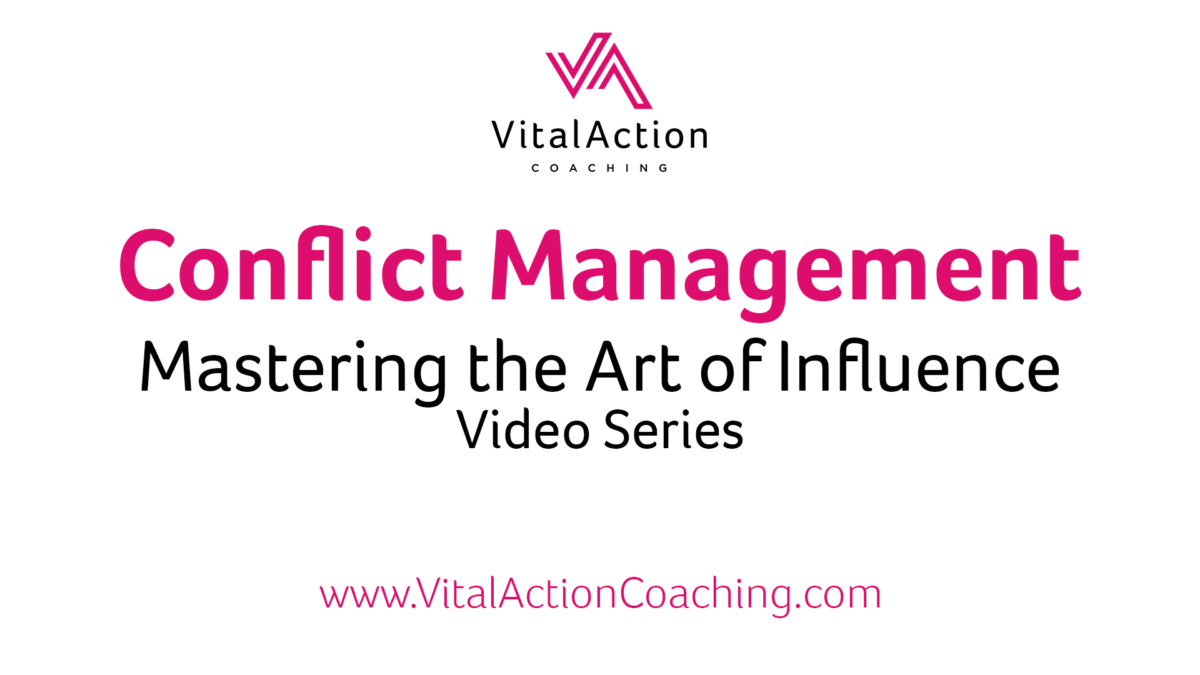Mastering The Art of Influence video series: Conflict management

Your mandate is to support your organization’s leaders in their professional development and enhance their ability to influence others, then keep watching this video on conflict management.
Conflict management is identifying, addressing, and resolving disagreements or disputes constructively and positively. It involves understanding and managing the emotions and opinions of those involved and working towards a mutually beneficial solution.
Effective conflict management is a critical skill for leaders, as unresolved conflicts can adversely impact their teams. Poor conflict management skills by team leaders can lead to several negative consequences for the team, such as:
1. Decreased productivity: Conflict can lead to misunderstandings, tensions, and disruptions, making it harder for the team to get things done.
2. Reduced morale: Conflicts can make team members feel demotivated and disengaged, reducing overall team morale and job satisfaction.
3. Increased turnover: If conflicts aren’t resolved, team members may become frustrated and leave the team or organization altogether.
4. Damaged relationships: Unresolved conflicts can cause long-term damage to relationships within the team, making it harder for team members to work together effectively in the future.
5. Impaired decision-making: If team members conflict, they may not reach a consensus or make effective decisions, leading to delays and errors.
Overall, poor conflict management skills in a team leader can significantly impact the team’s effectiveness, productivity, and culture.
But what are the signs that a leader has low conflict management skills? Let’s look at the five most common symptoms:
1. Avoidance: The leader tends to ignore or shy away from conflict rather than address it head-on.
2. Aggressiveness: The leader responds to conflict with an aggressive or belligerent approach, which can escalate the situation.
3. Taking sides: The leader takes sides in a conflict rather than remaining neutral and objective.
4. Drama: The leader creates unnecessary drama around conflict, making resolving conflict difficult and causing stress and tension for everyone involved.
5. Lack of follow-through: The leader doesn’t follow through on commitments made during conflict resolution, causing resentment and challenges to build trust with team members.
Dealing with conflicts is similar to firefighting: Both must be assessing the situation quickly but calmly, investigate the underlying causes, and use effective techniques to address it.
To improve conflict management skills among leaders in your organization, consider these five practical strategies:
Firstly, stay calm: Remain calm and composed while actively listening to others. Do not become defensive or argumentative.
Secondly, understand the situation: Take the time to understand the context and underlying causes of the conflict. This will help you to develop a more effective resolution.
Thirdly, encourage open dialogue: Create an environment that encourages open dialogue and respectful communication. This will help those involved to feel heard and validated and will facilitate a constructive resolution.
Fourthly, find common ground: Identify points of agreement and work towards a mutually beneficial solution. Strive to find a solution that everyone can agree on.
Lastly, follow up: After a resolution has been agreed upon, follow up to ensure that it has been effective and that all parties are satisfied. This will help to build trust and promote positive relationships going forward.
By using good conflict management strategies such as the five strategies above, leaders can effectively manage conflicts and prevent potentially damaging outcomes. In conclusion , good conflict management can improve overall team performance, resulting in better outcomes for the organization as a whole.
At VitalAction Coaching, we offer personalized coaching and training to develop skills and mindsets that help leaders become more influential. Whether you need assistance with leadership coaching, training or team building, our services are tailored to meet your unique needs. Visit VitalActionCoaching.com to schedule a free consultation and discover how we can help you or your organization thrive.
Thank you for watching.
